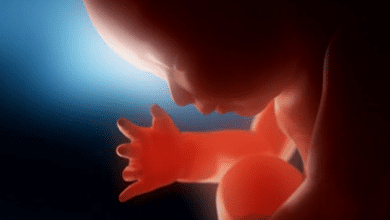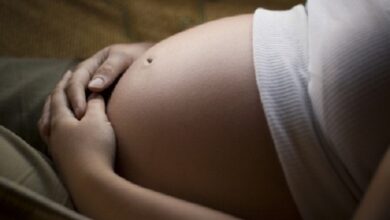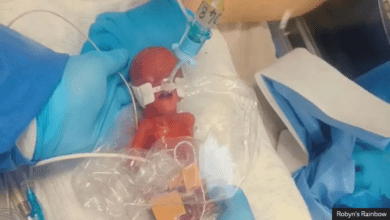They refused to abort a twin with Trisomy 18. Now, they fight for his medical care.
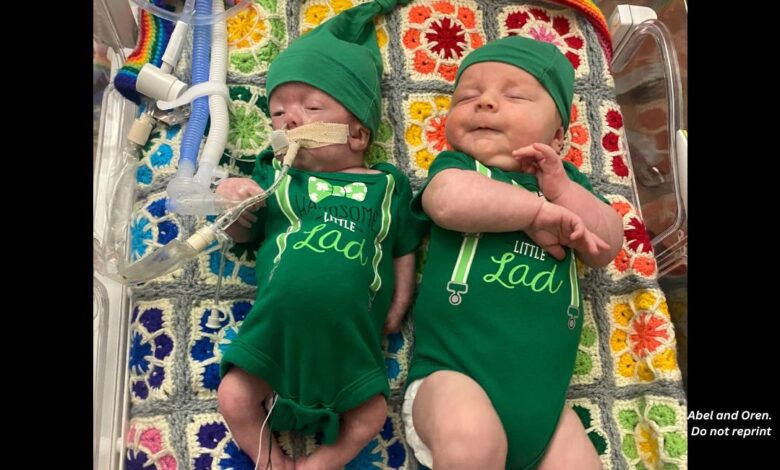
Following a woman’s announcement that she had to “flee” from Texas to undergo an abortion in California to end the life of one of her twin babies, another mother who is experiencing a similar situation – but chose life in rather – is speaking out.
In February, National Public Radio (NPR) published a story on Lauren Miller and the devastating diagnosis she received for one of her preborn twins. While one twin was considered healthy, the other was diagnosed with Trisomy 18, also known as Edward’s syndrome. Miller turned to the internet, where she read that 90% of babies with Trisomy 18 die before birth and those who survive to birth live only a few days longer. This information is inaccurate at best.
The genetic counselor told Miller that every day her daughter continues to live with Trisomy 18, she is putting her twins and Miller at risk. Pro-life laws in Texas now protect almost all babies from abortion, but, the genetic counselor explained that in pro-abortion states, an abortionist would do a “single fetal reduction.” In other words, they will kill the “unhealthy” baby by lethal injection. The dead baby will remain in the uterus with the living twin. But death by abortion is not a “cure” for any prenatal health condition of the child.
Miller was told, “Look, this baby is never going to be born” — and that information, along with severe morning sickness, led her to choose an abortion in California at 15 weeks. Her son with Trisomy 18 received a lethal injection. She sobbed when it was over.
Research shows that women who choose abortion following a fetal diagnosis have worse mental health outcomes than women carrying to term. Miller is confused about Trisomy 18 and makes a life-ending decision because of it.
Refusal of selective reduction for a baby with Trisomy 18
In a very different turn of events, seven weeks ago, another family — Jessie and her husband Matt — accepted the twins they had adopted as embryos.
Created as part of another woman’s IVF process, the two embryos were labeled ‘high-level mosaic and complex abnormal.’ Although such labels often mean that the embryos have been destroyed, the biological mother of these embryos wants to ensure that they are no destroyed or left frozen. He wanted them to have a chance at life, so he allowed them to be adopted by others as embryos.
Jessie and Matt, already parents of five children through natural pregnancy and adoption, knew that babies could have health conditions, and seeing the value in their lives, they decided to adopt.
At 12 weeks, they learned that one of the twins – named Abel – had a defect in the abdominal wall. Doctors pushed the couple to do further testing, but the couple chose to watch the defect as Abel grew. An MRI revealed that some of Abel’s organs were located outside his body in an omphalocele, a ‘bubble’ in his stomach. They also found out that he had a hole in his heart and a small lung.
Baby Abel. Do not reprint.
“[The doctors] tried to warn me, ‘You can really reduce it [selective reduction abortion]’ and I even had a doctor tell me, ‘Your baby won’t live very long. Maybe just a few minutes.’ And I said, ‘Well okay, then I’ll have the minutes with him’,” Jessie told Live Action News. “I always cut them off quickly if they start talking about downsizing or termination.”
At 33 weeks, doctors became concerned when they noticed a large amount of amniotic fluid in Abel’s sac. Jessie was advised that the babies had to be delivered or she could have a reduction in amniotic fluid to give her babies a chance to stay in the womb for a few more weeks. She and her husband decided to have the fluid removed and wait until 36 weeks to deliver the babies to help ensure the other twin – Oren – would not have to go to the NICU.
Two liters of amniotic fluid were removed, and doctors examined that fluid for chromosomal abnormalities. The results showed that Abel had Trisomy 18. In the three weeks before the twins’ birth, Jessie reached out to other parents of children with Trisomy 18 and learned how much hope there was for those with Trisomy 18. boy like Abel.
“That’s all I’m holding on to,” he said. “There is still hope. They don’t know everything until the baby is born. Doctors know only in utero. They tell you all these things but it’s all ‘could have, could have’ and so they don’t know 100% until the baby is born.”
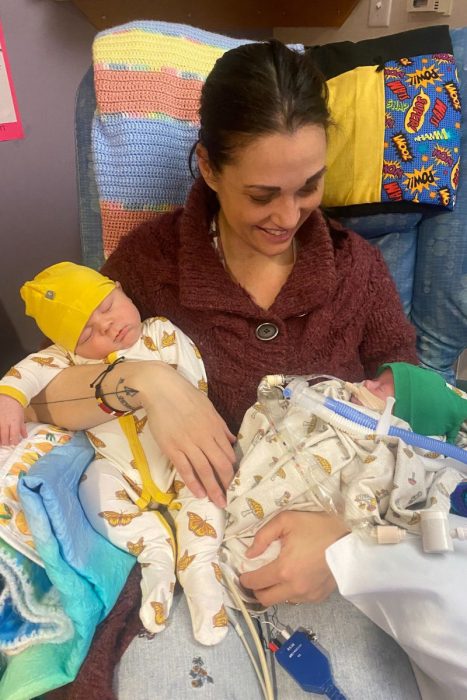
Jessie, Oren, and Abel. Do not reprint.
They were then given two choices after the birth of the boys. The first was to give Abel only palliative care — letting him die without supplemental oxygen or medical support. Another option is intervention — giving Abel the support he will need to survive.
“Convenience care is what most parents with a baby with Trisomy 18 talk about,” says Jessie. “So the statistics for babies with Trisomy 18 are very crappy because, one — they’re told to abort, or two — they’re told to deliver the baby prematurely because… this is what they told me: ‘Want you know him, right? He could die in utero so maybe we should just deliver now.’ Three — they do comfort care, which they don’t give any treatment or oxygen. They just put them on your chest and see how long they live. Most of them need oxygen. They need something else.”
The twins were born at 36 weeks, and Oren rejected the diagnosis placed on him as an embryo — he didn’t have any ‘abnormalities’. Abel, who has Trisomy 18, needs help – and Jessie and Matt decide on a full intervention for him.
He is doing so well and every week that he lives, the family celebrates. “He’s good. He is getting better. He is growing. He’s doing awesome,” he said.
Instead of looking at him as a diagnosis, the couple treated the health issues Abel had. Neither the hole in his heart nor the omphalocele proved to be a problem. An omphalocele is so small that it will not require surgery.
“We have some good doctors but it’s really hard because you don’t really know who to trust,” Jessie said. “Because a lot of times when they tell you things, you wonder, because they say things like, ‘Well because of her diagnosis, because of Trisomy 18’ and we made it really clear to our doctors that that’s not going to fly . . We were like, ‘No, you can’t blame the diagnosis.’”
If Abel needed treatment or surgery that a child without Trisomy 18 would receive without hesitation, then his parents would go to great lengths to ensure that he Get a treated and not discriminated against. However, the cardiologist at the hospital where Abel is currently at refuses to treat the hole in Abel’s heart – a procedure that is routine made for other children.
Abel’s records were sent to four other hospitals hoping to find a doctor who would not discriminate against him.
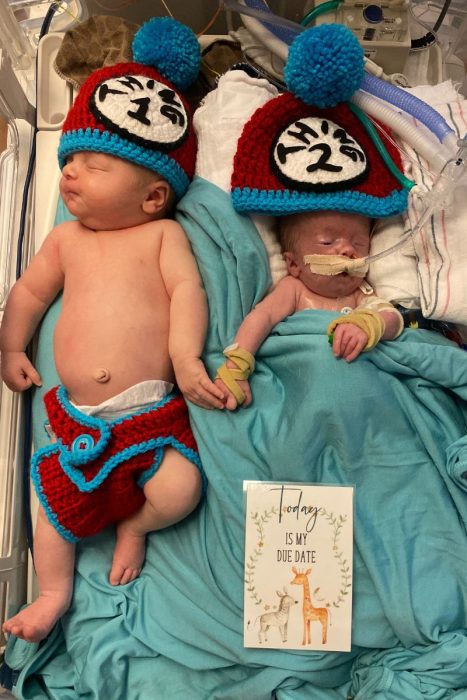
The twins Oren and Abel. Do not reprint.
Jessie believes the NPR story about Lauren Miller is tragic. “Now I hold my babies in my arms and think to myself, ‘This is what she missed.’ Even if it’s a week or a day or just once he can bring them together, ‘This is what you missed. You missed the opportunity to meet this boy,” he said. “And that’s just sad.”
90% of children with Trisomy 18 live when given proper medical care
Trisomy 18 is overwhelmingly categorized as “incompatible with life.” But this is not the case. FaithMelody, Kayden, and Bella are all survivors of Trisomy 18. What parents who receive such a diagnosis need to know is that there are doctors willing to give children with Trisomy 18 the medical support they need.
Dr. Marty McCaffrey is one such doctor, and he sought to know why some children with so-called “fatal fetal abnormalities” actually survive. What he learned was that ‘lethality begets lethality,’ which means that if children with Trisomy 18 and other trisomies are expected diethey die — because no one offers medical care to keep them alive.
“Compassionate doctors who love children even when they are disabled are the reason our daughter Faith is alive today at 14 and thriving with Trisomy 18,” Brad Smith told Live Action News.
He added, “Lauren Miller was lied to by doctors who said her child was infertile and lied to by online search results that gave completely false statistics of 90% death rates. The only 90 % death rate faced by Trisomy 18 children is the 90% abortion rate where they are killed in the womb just because they are disabled.”
The Smith family is grateful to have found help for their daughter. “We found wonderful doctors at the University of Michigan Mott Children’s Hospital who did not discriminate against our daughter because of her disability,” Smith said. “Faith is included in a Michigan Medicine study which shows 90% of Trisomy 18 children survive when they receive proper medical care. It is never ok to discriminate against children with disabilities whether it is from a doctor or a parent. These children deserve to be loved and cared for.”


